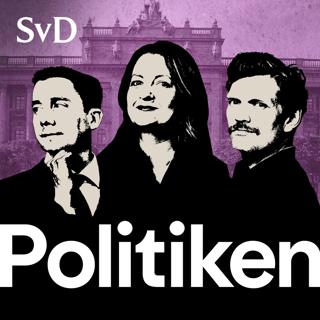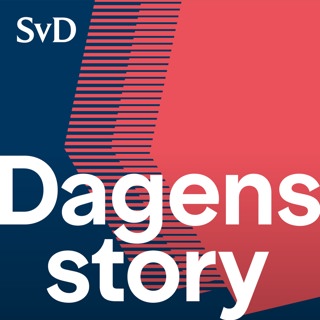
Epstein Files Unsealed: Jane Doe And Her 2007 Epstein Grand Jury Deposition In Florida (Part 2) (1/1/26)
The April 24, 2007 testimony before Federal Grand Jury 07-103 in West Palm Beach was part of Operation Leap Year, the federal investigation into Jeffrey Epstein’s sex-trafficking operation. The proceedings took place inside the U.S. Courthouse and reflected a moment when federal prosecutors were actively laying out evidence, witness testimony, and investigative findings related to Epstein’s alleged sexual exploitation of underage girls. This phase of the grand jury process focused on establishing patterns of conduct, corroborating victim statements, and clarifying the scope of Epstein’s activities, including how victims were recruited, transported, and compensated. Testimony presented during this session was aimed at helping jurors understand the systematic nature of the abuse rather than isolated incidents, reinforcing the argument that Epstein’s conduct met federal thresholds for serious criminal charges.In this episode, we begin digging into the deposition of one of the young women who accused Jeffrey Epstein, shifting the focus away from legal maneuvering and back onto the human cost at the center of this case. Her sworn testimony offers a chilling, first-person account of how she was recruited, what she was told, and what she experienced inside Epstein’s world, filling in details that never fully surfaced in public at the time. The deposition strips away euphemisms and defenses, replacing them with a raw narrative that shows how methodical and normalized the abuse became from the victim’s perspective. As we walk through her words, it becomes clear how closely her account aligns with others, reinforcing that these were not isolated claims but part of a broader, deeply entrenched pattern that federal investigators were already aware of in 2007.to contact me:bobbycapucci@protonmail.comsource:EFTA00009586.pdfBecome a supporter of this podcast: https://www.spreaker.com/podcast/the-epstein-chronicles--5003294/support.
1 Jan 10min

Epstein Files Unsealed: Jane Doe And Her 2007 Epstein Grand Jury Deposition In Florida (Part 1) (1/1/26)
The April 24, 2007 testimony before Federal Grand Jury 07-103 in West Palm Beach was part of Operation Leap Year, the federal investigation into Jeffrey Epstein’s sex-trafficking operation. The proceedings took place inside the U.S. Courthouse and reflected a moment when federal prosecutors were actively laying out evidence, witness testimony, and investigative findings related to Epstein’s alleged sexual exploitation of underage girls. This phase of the grand jury process focused on establishing patterns of conduct, corroborating victim statements, and clarifying the scope of Epstein’s activities, including how victims were recruited, transported, and compensated. Testimony presented during this session was aimed at helping jurors understand the systematic nature of the abuse rather than isolated incidents, reinforcing the argument that Epstein’s conduct met federal thresholds for serious criminal charges.In this episode, we begin digging into the deposition of one of the young women who accused Jeffrey Epstein, shifting the focus away from legal maneuvering and back onto the human cost at the center of this case. Her sworn testimony offers a chilling, first-person account of how she was recruited, what she was told, and what she experienced inside Epstein’s world, filling in details that never fully surfaced in public at the time. The deposition strips away euphemisms and defenses, replacing them with a raw narrative that shows how methodical and normalized the abuse became from the victim’s perspective. As we walk through her words, it becomes clear how closely her account aligns with others, reinforcing that these were not isolated claims but part of a broader, deeply entrenched pattern that federal investigators were already aware of in 2007.to contact me:bobbycapucci@protonmail.comsource:EFTA00009586.pdfBecome a supporter of this podcast: https://www.spreaker.com/podcast/the-epstein-chronicles--5003294/support.
1 Jan 11min

Happy New Year! (Now Release the Epstein Files!) (1/1/26)
Happy New Year to each and every one of you. As we step into this next chapter, I hope this year brings you health, stability, and moments of genuine peace in a world that rarely slows down. I hope it gives you clarity where there was uncertainty and strength where there was exhaustion. No matter what this past year took from you, you’re still here, and that matters. The fact that you continue to show up, listen, and care says a lot about who you are. I’m grateful beyond words that you choose to spend your time here, engaging with work that isn’t easy but is necessary. I truly wish nothing but the best for you and the people you love in the year ahead.I also want to sincerely thank you for staying engaged in the fight for truth and accountability around Jeffrey Epstein. Your attention, your questions, and your refusal to let this story fade are what keep pressure where it belongs. This fight only continues because people like you refuse to look away. Every message, every share, every conversation helps keep the truth alive. Your commitment has made a real difference, whether you realize it or not. As we move into this new year together, know that your support matters deeply and that this work continues because of you. Here’s to a strong, healthy, and determined year ahead for all of us.to contact me:bobbycapucci@protonmail.comBecome a supporter of this podcast: https://www.spreaker.com/podcast/the-epstein-chronicles--5003294/support.
1 Jan 11min

Walking the Epstein Tightrope: How DOJ Is Feigning Compliance Without Full Disclosure (1/1/26)
The U.S. Department of Justice is now operating under a level of scrutiny it has never faced in the Jeffrey Epstein matter, forced by newly enacted transparency laws to disclose records it spent years sealing, slow-walking, or shielding under claims of prosecutorial discretion and victim privacy. Publicly, DOJ insists it is complying in good faith—releasing documents in phases, redacting sensitive material, and coordinating with courts to avoid prejudicing ongoing matters. Privately, the department is clearly trying to manage exposure, balancing legal compliance against the institutional risk of revealing how aggressively—or passively—it handled Epstein and his network over decades. The result is a calibrated drip of information that technically satisfies statutory requirements while avoiding a full, unfiltered reckoning with past charging decisions, non-prosecution agreements, and investigative dead ends.That tightrope walk is most obvious in how DOJ frames delays and redactions as necessary safeguards rather than resistance, even as critics argue the law’s intent was to end precisely this kind of gatekeeping. By releasing materials without broader narrative context, the department limits immediate legal jeopardy while still appearing responsive to Congress and the public. But the strategy carries risk: each partial disclosure fuels further questions about what remains withheld and why, especially when previously secret decisions appear indefensible in hindsight. In effect, DOJ is complying with the letter of the Epstein transparency laws while testing how much control it can retain over the story—an approach that may keep it legally safe in the short term, but politically and reputationally exposed as more records inevitably come to light.to contact me:bobbycapucci@protonmail.comBecome a supporter of this podcast: https://www.spreaker.com/podcast/the-epstein-chronicles--5003294/support.
1 Jan 11min

Mega Edition: Alan Dershowitz Capitulates To Netflix And Talks Epstein And Intelligence (1/1/26)
Alan Dershowitz quietly dropped his defamation lawsuit against Netflix, ending a legal fight he launched over his portrayal in the Epstein-related documentary series. Dershowitz had claimed the program falsely implicated him in Jeffrey Epstein’s crimes and damaged his reputation, but the decision to abandon the case brought the dispute to an abrupt close without a courtroom reckoning over the underlying allegations. The withdrawal spared Netflix from discovery and testimony that could have further widened the Epstein record, while also leaving many of the factual disputes unresolved in the public eye.At the same time, Alan Dershowitz reignited controversy by repeating and expanding on his claim that Jeffrey Epstein functioned as a kind of intelligence asset or “spy,” a characterization he has floated in multiple interviews over the years. Dershowitz has suggested Epstein’s connections to powerful figures and governments explain both his unusual access and the extraordinary leniency he received for so long. Critics argue that framing Epstein as a spy risks deflecting attention from the concrete evidence of abuse and the institutional failures that protected him, turning a documented criminal conspiracy into a murkier story of intrigue that muddies accountability rather than clarifying it.to contact me:bobbycapucci@protonmail.comBecome a supporter of this podcast: https://www.spreaker.com/podcast/the-epstein-chronicles--5003294/support.
1 Jan 39min

Mega Edition: Les Wexner And The Jeffrey Epstein White Wash (1/1/26)
Les Wexner’s central role in Jeffrey Epstein’s rise—from obscure money manager to untouchable power broker—has been persistently minimized, softened, or outright ignored in much of the public narrative. Epstein did not ascend in a vacuum. His access, wealth, legitimacy, and institutional protection were built first and foremost through Les Wexner, who handed Epstein unprecedented financial authority, legal insulation, and proximity to elite political and social networks. That relationship was not incidental or brief; it was foundational. Yet over time, Wexner has been recast as a naive victim of betrayal rather than the primary enabler who created the conditions that allowed Epstein to operate with power, money, and perceived credibility for decades.This whitewashing persists despite overwhelming evidence that Epstein’s reign of terror depended on the empire Wexner placed in his hands—control over vast assets, private aircraft, multiple properties, and the veneer of respectability that comes from being tied to one of the most powerful businessmen in America. While Jeffrey Epstein is rightly condemned as the predator at the center, the systems and patrons that empowered him are routinely excused, compartmentalized, or quietly absolved. Wexner’s narrative has been carefully laundered through selective reporting and legal distance, but the reality remains unavoidable: without Wexner’s patronage, Epstein never becomes Epstein, and the continued reluctance to confront that truth represents one of the most enduring failures of accountability in the entire scandal.to contact me:bobbycapucci@protonmail.comBecome a supporter of this podcast: https://www.spreaker.com/podcast/the-epstein-chronicles--5003294/support.
1 Jan 43min

Mega Edition: Jes Staley Complains About Being Railroaded By The Epstein Allegations (12/31/25)
Jes Staley has repeatedly argued that he was unfairly railroaded by his association with Jeffrey Epstein, portraying himself as collateral damage in a scandal he claims was exaggerated and mischaracterized. In public statements and court filings, Jes Staley has insisted that his relationship with Epstein was overstated, that he had no knowledge of Epstein’s criminal conduct, and that the fallout cost him his career and reputation unjustly. Staley has framed the allegations as a narrative pile-on—suggesting that regulators, banks, and the media needed a single, convenient figure to absorb blame once Epstein’s crimes became impossible to ignore.Those denials, however, collapse under the weight of the documented facts. Emails, travel records, and testimony show that Staley maintained a far closer and longer relationship with Jeffrey Epstein than he publicly acknowledged, including repeated personal contact well after Epstein’s 2008 conviction. Evidence revealed during regulatory investigations and litigation contradicts Staley’s claims of distance and ignorance, exposing a pattern of sustained engagement that undercuts his credibility. When set against the paper trail, Staley’s insistence that he was merely an unlucky bystander rings hollow—less a case of being railroaded, and more an example of how implausible denials unravel once they’re tested against emails, calendars, and sworn findings.to contact me:bobbycapucci@protonmail.comBecome a supporter of this podcast: https://www.spreaker.com/podcast/the-epstein-chronicles--5003294/support.
1 Jan 50min

Kash Patel And His Crash Out During His Epstein Testimony
Washington has long perfected the art of political theater, where outrage is loudly paraded before cameras only to evaporate when accountability is required. On the campaign trail, fiery speeches about corruption and justice come easy—rhetoric designed for applause, not action. Yet when those same figures sit under oath, the fire dies out, replaced by carefully hedged statements and dismissive legal jargon. It’s not about uncovering truth; it’s about protecting power.That’s the script Kash Patel followed to the letter. After crowing about Epstein’s crimes for political gain, he turned around and downplayed survivor testimony as “not credible” when speaking before the Senate. The hypocrisy couldn’t be clearer. What once served as an applause line became an inconvenient truth, quickly discarded in favor of denial. The mask slipped, the act collapsed, and what was revealed was not a defender of justice but yet another operator shielding the powerful under the guise of credibility.to contact me:bobbycapucci@protonmail.comBecome a supporter of this podcast: https://www.spreaker.com/podcast/the-epstein-chronicles--5003294/support.
1 Jan 10min





















